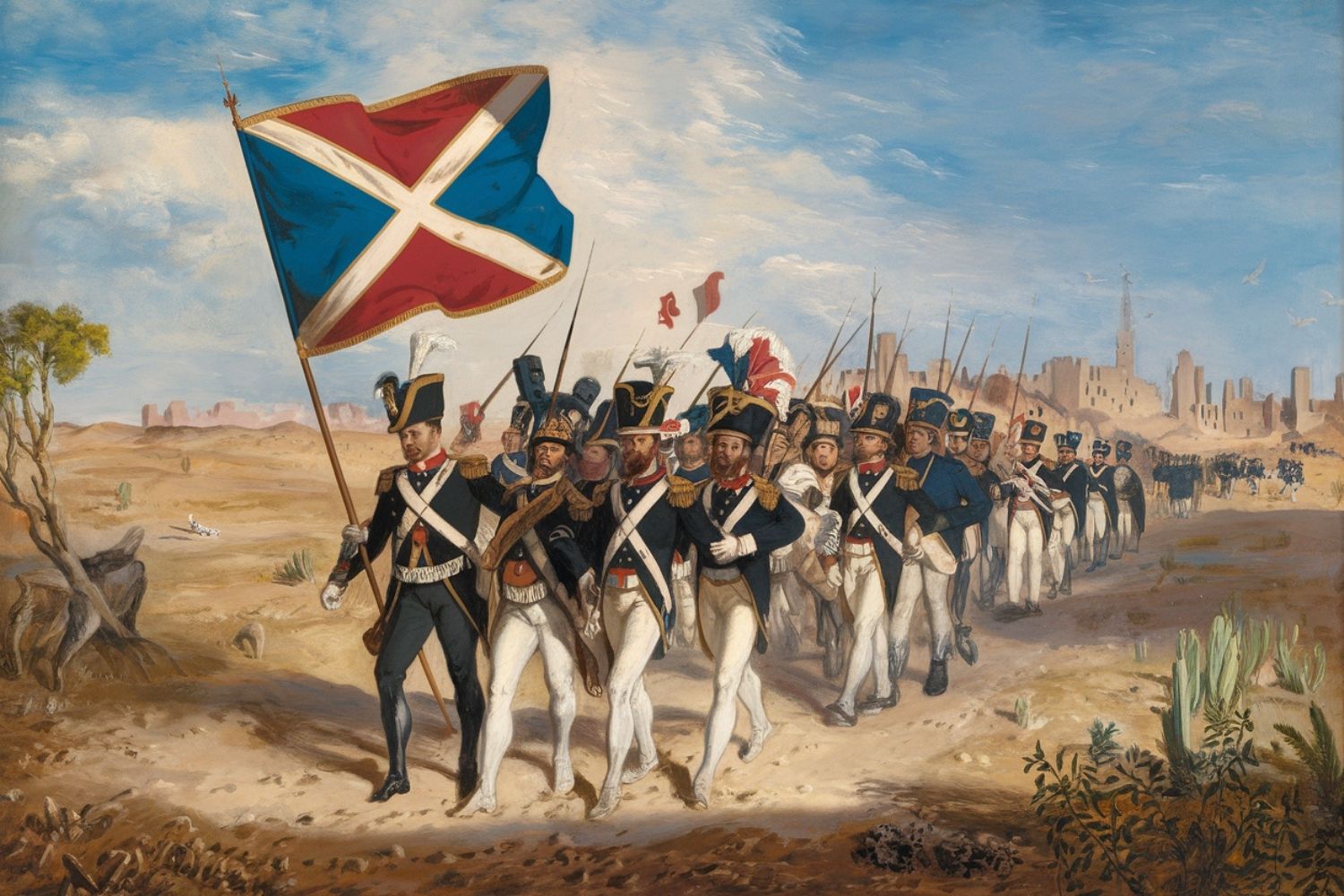
Did you know the French Conquest of Borno was a pivotal event in African history? This fascinating chapter unfolded in the early 20th century when French colonial forces sought to expand their influence in West Africa. Borno, a historic kingdom located in present-day Nigeria, Chad, and Niger, became a target due to its strategic location and rich resources. The French aimed to control trade routes and assert dominance over the region. The conquest involved intense battles, diplomatic maneuvers, and significant cultural exchanges. Understanding this period sheds light on the complexities of colonialism and its lasting impact on African societies. Buckle up as we delve into 25 intriguing facts about this historical event!
Key Takeaways:
- The French conquest of Borno in Nigeria had a lasting impact on the region, shaping its borders, culture, and economy. It also led to resistance movements and the legacy of local hero Rabih az-Zubayr.
- The French used military tactics and alliances to conquer Borno, bringing about changes in governance, economy, and culture. Despite this, the region's history and traditions continue to reflect its rich heritage and resistance.
French Conquest of Borno: An Overview
The French conquest of Borno is a fascinating chapter in African history. Borno, a region in present-day Nigeria, was once a powerful kingdom. The French, driven by colonial ambitions, sought to expand their influence in Africa. Here are some intriguing facts about this historical event.
-
Borno's Strategic Location: Borno was located in the Lake Chad region, making it a strategic point for trade and military campaigns.
-
Rich History: The Borno Empire, also known as the Kanem-Bornu Empire, had a rich history dating back to the 9th century.
-
French Ambitions: France aimed to connect its West African colonies with its territories in Central Africa, making Borno a key target.
-
Resistance: The people of Borno fiercely resisted French advances, showcasing their determination to protect their homeland.
-
Sultan Rabih az-Zubayr: Rabih az-Zubayr was a key figure in Borno's resistance against the French. His leadership was instrumental in the initial defense.
Key Battles and Events
Several significant battles and events marked the French conquest of Borno. These moments were pivotal in shaping the outcome of the conflict.
-
Battle of Kousséri: This battle in 1900 was a decisive moment where French forces defeated Rabih az-Zubayr's army.
-
Rabih's Death: Rabih az-Zubayr was killed in the Battle of Kousséri, leading to a significant blow to Borno's resistance.
-
French Tactics: The French used superior weaponry and military tactics to overpower Borno's forces.
-
Local Alliances: The French formed alliances with local tribes to weaken Borno's defenses.
-
Occupation of Dikwa: After Rabih's death, the French occupied Dikwa, a major town in Borno, solidifying their control.
Impact on Borno and Its People
The French conquest had profound effects on Borno and its inhabitants. These changes were both immediate and long-lasting.
-
Colonial Rule: Borno came under French colonial rule, altering its political landscape.
-
Economic Changes: The French introduced new economic policies, impacting local trade and agriculture.
-
Cultural Influence: French culture and language began to influence Borno's society.
-
Resistance Movements: Despite the conquest, resistance movements continued to emerge, fighting for independence.
-
Legacy of Rabih: Rabih az-Zubayr became a symbol of resistance and heroism in Borno's history.
French Administration and Policies
The French implemented various administrative policies to govern Borno. These policies aimed to integrate Borno into the French colonial empire.
-
Indirect Rule: The French often used indirect rule, relying on local leaders to administer their policies.
-
Taxation: New taxation systems were introduced, which sometimes led to local discontent.
-
Infrastructure Development: The French built infrastructure such as roads and schools to facilitate their control.
-
Education: French educational policies aimed to assimilate the local population into French culture.
-
Military Presence: A strong military presence was maintained to suppress any uprisings.
Long-term Consequences
The long-term consequences of the French conquest of Borno are still evident today. These effects have shaped the region's modern history.
-
Borders: The conquest influenced the modern borders of Nigeria and its neighboring countries.
-
Cultural Blend: A blend of French and local cultures can be seen in Borno's traditions and customs.
-
Historical Memory: The events of the conquest are remembered and commemorated in Borno's history.
-
Economic Legacy: The economic policies introduced by the French have had lasting impacts on Borno's economy.
-
Political Evolution: The political structures established during the colonial period have influenced Borno's modern governance.
Final Thoughts on the French Conquest of Borno
The French Conquest of Borno left a lasting impact on the region's history, culture, and political landscape. This period saw significant changes, from the introduction of new administrative systems to shifts in local power dynamics. The French influence reshaped Borno's trade routes, bringing new economic opportunities and challenges. Additionally, the conquest led to cultural exchanges that enriched the local traditions, blending French and Bornoan elements. Understanding these historical events helps us appreciate the complexities of colonial interactions and their long-term effects. As we reflect on this era, it's crucial to recognize the resilience and adaptability of the Borno people in the face of foreign domination. Their ability to navigate and integrate these changes speaks volumes about their strength and resourcefulness. The French Conquest of Borno remains a pivotal chapter in the broader narrative of African history.
Frequently Asked Questions
Was this page helpful?
Our commitment to delivering trustworthy and engaging content is at the heart of what we do. Each fact on our site is contributed by real users like you, bringing a wealth of diverse insights and information. To ensure the highest standards of accuracy and reliability, our dedicated editors meticulously review each submission. This process guarantees that the facts we share are not only fascinating but also credible. Trust in our commitment to quality and authenticity as you explore and learn with us.
